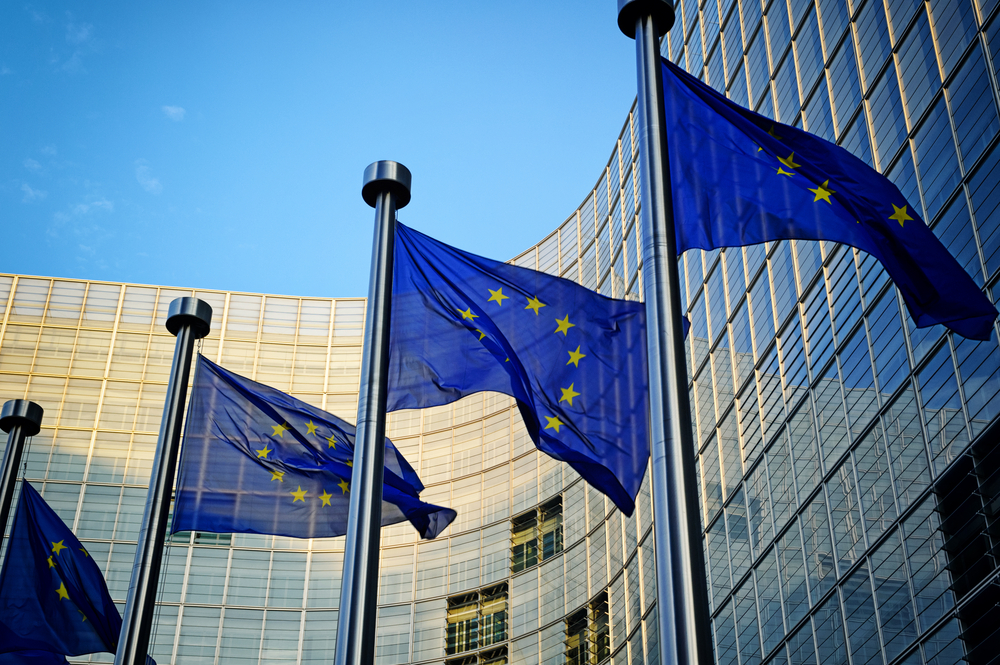Thu Sep 08, 2022
European Central Bank Increases Interest Rate by 75 bps for the First Time in It's History
The European Central Bank's (ECB) critical 7-8 September monetary policy meeting ended today.
For the first time since its establishment on 1 June 1998, the bank raised interest rates by 75 basis points, bringing the refinancing operation interest rate to %1.25, the deposit interest rate to %0.75, and the marginal funding interest rate to %1.50.
Looking at the details of the decision text, the bank pointed out that they have adjusted interest rates to highlight the transition to levels that will ensure a return to the %2 medium-term inflation target and that they aimed to increase interest rates more to reduce demand in the next few meetings and to counter the risks of upward slippage in inflation expectations.
The text emphasizes that the Board of Directors will continue to adhere to the macroeconomic data received to decide policy interest rates at future meetings while also will continue to apply a meeting-to-meeting approach.
In the text, which points out that rising energy and food prices, demand pressures, and supply bottlenecks increase inflation, it is reflected that price pressures continue to expand and strengthen, while it is underlined that interest rates can be further increased because inflation remains very high and is likely to remain above the target for a long time.
In the text, which mentions that the monetary policy will normalize and inflation rates will decrease if the driving forces in inflation decrease over time, the ECB revised its inflation estimates upwards to %8.1 for 2022, %5.5 for 2023, and %2.3 for 2024.
The report noted that following the recovery in the first half of 2022, the latest data indicated a significant slowdown in the growth of the Eurozone and that the economy is expected to stagnate in the first quarter of 2023.
The text emphasized that the high energy prices caused by the Russia-Ukraine war reduced the purchasing power and damaged the confidence of businesses and consumers, especially the supply bottlenecks, and it is stated that under this outlook, the economy is expected to grow by %3.1 in 2022, %0.9 in 2023 and %1.9 in 2024.
It is also emphasized that the persistent vulnerabilities caused by the coronavirus pandemic still pose a risk to the smooth transmission of monetary policy and therefore the Board of Directors will continue to apply flexibility in reinvesting the repayments due in the Pandemic Emergency Purchasing Program (PEPP) portfolio to counter the risks related to the transmission mechanism related to the pandemic. Furthermore, about PEPP, the Board of Directors reiterated its intention to reinvest principal payments from purchased overdue securities by at least the end of 2024.
In addition, it was reported that the maturation of the operations within the scope of the third series of targeted long-term refinancing operations (TLTRO III) would ensure the smooth conduct of monetary policy, while it was also emphasized that how targeted lending transactions contribute to the monetary policy stance would be regularly evaluated. Finally, the Board reiterated that all instruments are ready to be adjusted within the mandate to ensure that inflation stabilizes at the %2 targets in the medium term.
Speaking to the press after the critical meeting, ECB President Christine Lagarde said inflation risks were upside and that this would require a larger interest rate hike, adding that the decision would help achieve the medium-term objectives.
While pointing out that price pressures are spreading to more and more sectors, President Lagarde emphasized that inflationary pressures stemming from the weak euro and that supply bottlenecks and deterioration in energy supply put pressure on inflation.
Lagarde said that even if the slowing economy could cause a slight increase in unemployment rates, the labor market remains strong. Finally, the President underlined that future policy interest decisions would depend on incoming macroeconomic data.
The ECB's first interest rate increase of 75 basis points in its history reveals that the bank is going through a difficult process. Indeed, the effects of energy prices, which increased with the reflections of the Russia-Ukraine war, are strongly felt in Europe. The emphasis in the text that the price pressures are widespread, supports this but points out that it is still early to see a peak in inflation and also that the ECB's rate hike cycle is far from over yet.
After the bank's decision, the euro recovered from the lowest levels in 20 years against the dollar but failed to maintain its earnings. Here, Lagarde's pointing out recession risks was effective. The DAX40 index, which is the leading indicator, is priced at 12 725 points with a loss of about %2 after its opening at 12 992 points.

